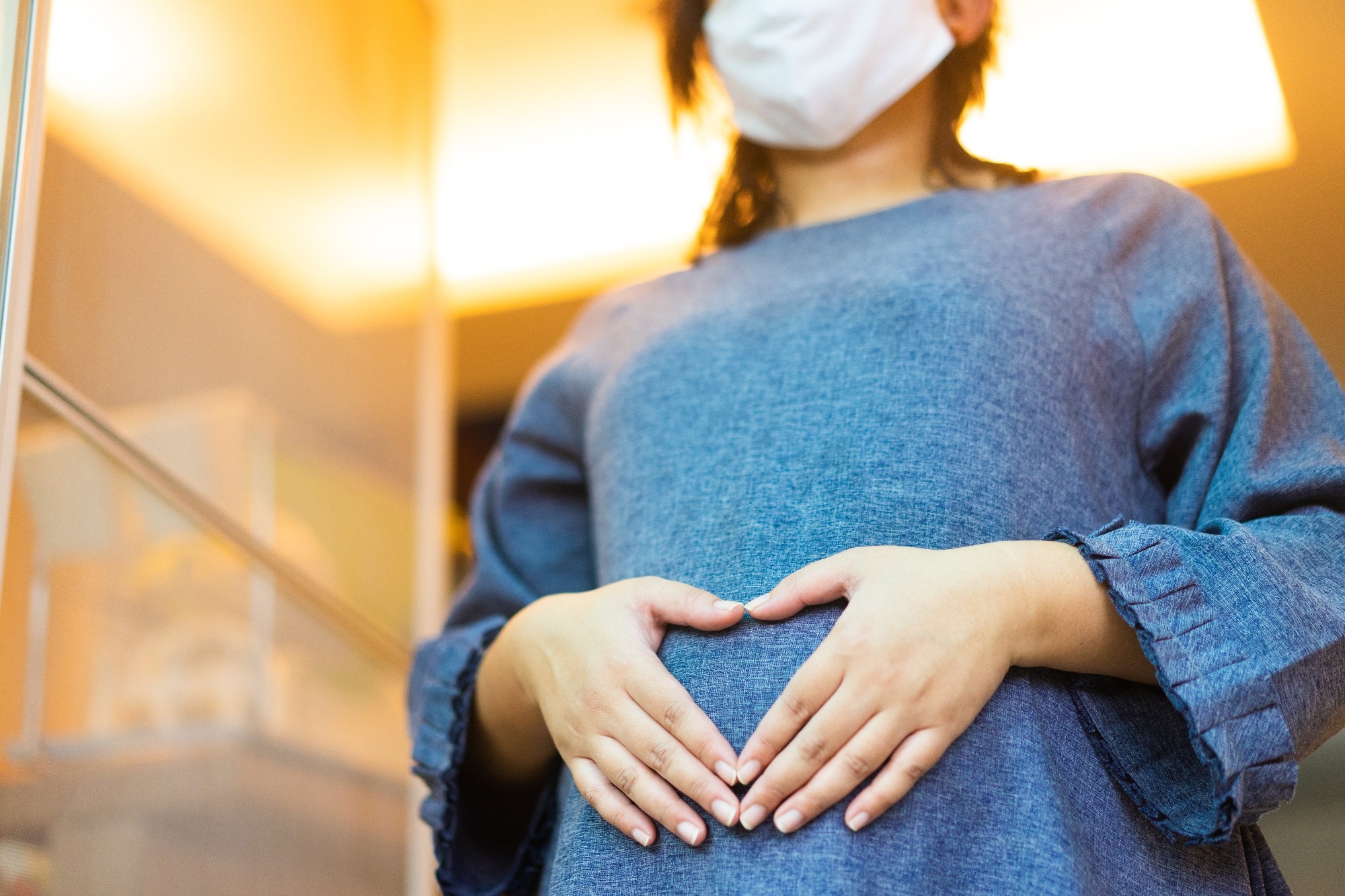
In a recent study published in the Journal of Nursing Management, researchers from Italy performed a qualitative study on the lived experiences of women who were pregnant during the coronavirus disease 2019 (COVID-19) pandemic to understand the adverse physical and mental health outcomes associated with experiencing pregnancy and childbirth during the pandemic-enforced restrictions.

Background
The COVID-19 pandemic has resulted in 21,814,856 cases and 175,407 deaths in Italy. Since early 2020, various mitigation measures, such as social distancing and lockdowns, have been enforced in the country to limit the spread of the virus.
The restrictions on the admission of family members into hospitals had severely decreased the familial support available to pregnant women admitted to maternity wards, resulting in increased stress in these expectant mothers. Studies suggested increased mental health disorders and negative birth experiences in recent mothers due to pandemic-associated stress.
Elevated anxiety and depression in expectant and new mothers are also known to have long-term impacts on the fetus’s health. Children born to mothers with psychological distress during pregnancy show cognitive and behavioral impairments later in life.
About the study
In the present study, the researchers used a narrative-based medicine approach to understand the experiences of expectant mothers above 18 admitted to the maternity ward of a hospital in Alessandria, Italy, between November 2021 and April 2022. After acquiring informed consent, the patients were invited to write about their emotions and experiences during the first wave of the pandemic and the enforced isolation, which were then collected anonymously.
The narrative consisted of the patient’s experiences from social, institutional, family-related, and linguistic contexts. The data from the records were phenomenologically analyzed to understand conversational sequences and preliminary labels, which were then grouped into major themes and sub-themes.
Results
The results reported the experiences of 50 mothers, of whom 28 were pregnant for the first time, and 22 were pregnant with their second child. The women in the study group were predominantly Italian and were, on average, 32.66 years old. Around 56% of the participants had a high school education.
The experiences of pregnant women for the first and second time were grouped into five broad themes. The first theme described feelings of sadness and fear associated with loneliness due to the absence of a family member or caregiver during the hospitalization. In contrast, the second theme consisted primarily of feelings of peace and calm due to the competence of the hospital staff, who compensated for the absence of family members by providing reassurance and constant care.
The third theme expressed the balance between the feelings of comfort and stress associated with having a family member close by during birth. While most mothers wanted a family member to be present while delivering the baby, they also admitted to enjoying the solitude and time spent with the baby during the COVID-19-enforced restrictions.
Similarly, the fourth theme also highlighted the mothers’ positive feelings about having an opportunity to care for and bond with their babies without the presence or involvement of other family members. Most mothers expressed a change in perspective and admitted that their initial fears about taking care of a newborn without the support of their family later felt like an opportunity to establish a symbiotic relationship with their baby.
The last theme addressed the feelings associated with physical childbirth pains and the circumstance of having to experience those pains without the support of a family member. Although many women were resilient and admitted to having hitherto unknown reserves of strength, the absence of familial support during childbirth did not seem to be compensated by competent and caring healthcare staff alone.
Conclusions
To summarize, the study used narrative-based medicine to explore the experiences of expectant mothers who were admitted to a hospital maternity ward in Italy during the COVID-19 enforced social restrictions.
Overall, the study reported that feelings of fear, loneliness, and sadness were assuaged to a large extent by the extra care and support provided by the professional and competitive staff of the hospital. Furthermore, many mothers admitted to feeling calm and peaceful and appreciating the quiet time they had to care for and bond with their babies without family members. The one aspect where many mothers felt the lack of familial support was during the physical pain of childbirth.
- Bolgeo, T., Gambalunga, F., Di Matteo, R., Gatti, D., Roberti, E., Dealberti, D., Fadda, B., Grassi, E., Gambarini, L., Iacorossi, L., & Maconi, A. (2022). Becoming a mother during the covid‐19 pandemic: the lived experience as told by birthing mothers: a qualitative study. Journal of Nursing Management. doi: https://doi.org/10.1111/jonm.13890 https://onlinelibrary.wiley.com/doi/10.1111/jonm.13890
Posted in: Medical Science News | Medical Research News | Women's Health News | Disease/Infection News
Tags: Anxiety, Baby, Childbirth, Children, Coronavirus, Coronavirus Disease COVID-19, covid-19, Depression, Education, Healthcare, Hospital, Medicine, Mental Health, Newborn, Nursing, Pain, Pandemic, Pregnancy, Stress, Virus
.jpg)
Written by
Dr. Chinta Sidharthan
Chinta Sidharthan is a writer based in Bangalore, India. Her academic background is in evolutionary biology and genetics, and she has extensive experience in scientific research, teaching, science writing, and herpetology. Chinta holds a Ph.D. in evolutionary biology from the Indian Institute of Science and is passionate about science education, writing, animals, wildlife, and conservation. For her doctoral research, she explored the origins and diversification of blindsnakes in India, as a part of which she did extensive fieldwork in the jungles of southern India. She has received the Canadian Governor General’s bronze medal and Bangalore University gold medal for academic excellence and published her research in high-impact journals.
Source: Read Full Article